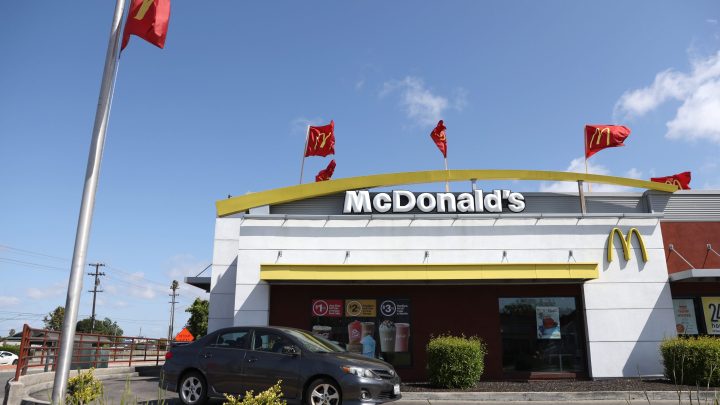
Franchises are big business, but they’re adjusting to economic headwinds
Franchises are big business, but they’re adjusting to economic headwinds

McDonald’s told its franchisees Friday that if they wanted to open a new location, it was going to cost them more. The Golden Arches will charge a 5% royalty fee for some franchisees that open a new restaurant, per a company email viewed by Marketplace. That’s up from the 4% McDonald’s has been charging for 30 years.
The franchise model is a big part of this economy — 790,000-some odd franchises account for millions of jobs in the United States. But that model is adjusting to economic headwinds.
Greg Flynn and some business partners tried to start an independent restaurant chain in the mid-’90s. It was hard.
“Landlords don’t know you and don’t want to lease to you. Vendors don’t know you and are worried about selling to you. Employees don’t know you and are worried about working for you. And then ultimately customers don’t know you and you have to convince them to come try you,” Flynn said.
The franchise model promises to fix all that. Franchisees pay an established brand like Taco Bell a recurring fee, let corporate take care of the marketing and then they can focus on operations.
Flynn is now what’s known in the franchise world as a mumbo — a multifranchise owner. He has Taco Bells, Arby’s, Applebee’s and Pizza Huts.
With inflation, he said, franchise models have offered another big advantage: leverage to keep input prices down. “Think how much cheese it uses for Taco Bell and Pizza Hut. They can drive and do drive volume discounts.”
While fast food remains the prototypical franchise business, Matt Haller with the International Franchise Association said the model is woven into your personal economy.
“Marriott hotels, Great Clips salons, Anytime Fitness, the Goddard School, UPS Store,” Haller said.
But over the past year, franchise enthusiasm has been draped in a familiar economic wet blanket: the Federal Reserve.
“If you’re going into a franchise business with real estate included, and you need to borrow money, it’s probably more than double the cost today than it was even a year or so ago,” Haller said.
Also more expensive: labor.
Some parent companies are trying to help with recruiting and retention. But many prefer to keep employee issues at arm’s length, for fear of triggering more regulation.
There’s a lot happening in the world. Through it all, Marketplace is here for you.
You rely on Marketplace to break down the world’s events and tell you how it affects you in a fact-based, approachable way. We rely on your financial support to keep making that possible.
Your donation today powers the independent journalism that you rely on. For just $5/month, you can help sustain Marketplace so we can keep reporting on the things that matter to you.











